|
|
|
|
|
|
![]()
PORCUPINE TREE
![]()
"We Lost the
Skyline" (Transmission; 2008)![]()
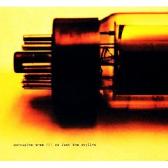
Reviewed by Christopher J. Kelter



"We Lost the Skyline" captures
Porcupine Tree in a live acoustic performance. Fully expecting to do an in-store performance with a full band,
Porcupine Tree find themselves unable to perform due to lack of space. Reduced to a
small stage, they make do by basically taking turns.
Porcupine Tree mainman Steven Wilson handles the first three songs in solo fashion. The set starts off with an interesting rendition of “The Sky
Moves Sideways” which focuses on the lyrical portions of the song. A rushed, although energetic, performance of “Even Less” is lacking, but
interesting nonetheless. A standard, yet spirited, performance of “Stars Die” closes out the first half.
Ace-in-the-hole John Wesley joins in for the last five songs of this set. “Waiting” is a standard version of the track from the band’s classic album
“Signify.” “Normal,” from the recent EP “Nil Recurring,” is refreshing to
hear as it fits the normal “it’s new let’s play it” theme. The popular “Drown with Me” follows next – the
inclusion of this track is a gem as it is not available on standard Porcupine Tree releases yet was a featured
track in most of the band’s 2007 concert performances. An understated “Lazarus” changes the mood quite effectively. “Trains,” always in danger
of being overplayed but as close to an all-world classic as PT will ever get, closes out this solid set.
Porcupine Tree completists will have to have “We Lost the Skyline” in their collections. Casual fans might not be too impressed with this
effort.
“We Lost the Skyline” was produced by Matt Gorney.
The recording of “We Lost the Skyline” was performed by Steven Wilson (guitar, vocals) on all tracks and John Wesley (guitar) on four tracks.
For more information visit http://www.porcupinetree.com.
![]()
"Fear of a Black
Planet" (Atlantic; 2007)![]()
![]()
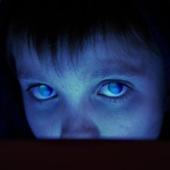
Reviewed by Jeff Rogers



![]()
I think a lot of people can take Porcupine Tree or leave them. I, for one, really like them because they are strange but not so weird that I lose interest when they start telling a story with their musical approach. The music is very well done and almost theatrical at times and other times it's hard rock with progressive attributes. It's all-around odd and you never know how it's going to unfold because they do it with an unconventional, unmatched way.
This album is based on the book "Lunar Park" by Brett Easton Ellis. He also wrote "Less Than Zero." You don't need to head out and read the book before absorbing this disc so I won't be assigning any homework this week. Many of the songs are based around the idea that kids spend all their time in their rooms with the shades drawn. They are connected to computers and phones and digest the darkness, in more than one way. The album title is taken directly from Public Enemy's "Fear Of A Black Planet" released in 1990.
The CD is 50:48 and it's up and down on the musical scale. Some songs run five minutes and the longest tops out at 17:42. Progressive music is allowed to plant, water and grow into a song and Porcupine Tree takes that formula to heart. Some notable names that appear on this disc are Alex Lifeson, Robert Fripp and John Wesley.
I usually get a Porcupine Tree disc, rip it to my hard drive, and relax in it when I have an hour to spare. I wrote this review while listening to it so I spent fifty minutes typing while listening and understanding the story. As always, Porcupine Tree releases their work on three different types of media with limited pressings and if you're lucky enough to own one hold on to it: they are rare.
Porcupine Tree: Steven Wilson – vocals, guitars, piano, keyboards; Richard Barbieri – keyboards and synthesizers; Colin Edwin – bass guitars; Gavin Harrison – drums, tapped guitar on "Nil Recurring" (vinyl and DVDA editions).
For more information, check out http://www.porcupinetree.com.
![]()
"Deadwing" (Atlantic /
Lava; 2005)![]()
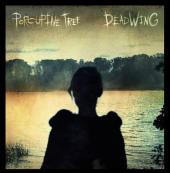
![]()
Reviewed by Christopher J. Kelter




After hearing about Porcupine Tree's supposed greatness through trusted sources on the Internet, I made it a point to pick up the band's albums. I spent the following years doing everything I could to acquire the band's back catalog and other musical material. One by one, each Porcupine Tree album made it into my collection and I was hooked. And it's been a wonderful journey to work my way back in time to hear a band evolve over the years into one of the preeminent musical acts of our time.
As you can no doubt guess (for me anyway), "Deadwing" is certainly one of my most anticipated releases of 2005. And, to tell the truth, I was a bit disappointed upon listening to "Deadwing" for the first time. I began to wonder if my expectations were a bit too high. I thought "Deadwing" was too sprawling and rather disjointed – imagine my dismay and initially thinking a prog-rock band was too sprawling! I understood "Deadwing" to be a soundtrack for a screenplay that has been written but not yet turned into a movie – I was hoping this knowledge would benefit my appreciation of the story and overall flow of the album, but it wasn't to be. Consequently, it took me a few spins to really get in tune with the material on "Deadwing." Even though I eventually fell in love with the material, I'm still at a loss to tell you what the 'movie' is about.
Much has been made of the influence that Opeth's Mikael Akerfeldt has had on Stephen Wilson regarding his use of heavier riffs and distortion. There are plenty of heavy riffs on "Deadwing." Both the title track and "Shallow" have a raw, primal immediacy not often found on prog-rock records. "Shallow," for what it's worth, is destined to be a great single for the band – heavy, groove-laden, and catchy as hell.
As Stephen Wilson has pointed out, progression takes many forms. If nothing else, Wilson is dedicated to progression – for him and the band. In the Porcupine Tree universe progression takes a few primary forms. Where Porcupine Tree was once purely a solo effort, the band has truly evolved into a cohesive unit – and Wilson accepted songwriting contributions on a few tracks from his bandmates on "Deadwing." This alone is enough to give the overall impact of "Deadwing" a distinction that no other Porcupine Tree album has. Wilson also falls back on some of the more traditional 'progressive' idioms by stretching out the song's length and quietly letting each melody and musical idea slowly evolve into a fully realized whole. The song structures, while not overtly complex, are not the least bit traditional.
An interesting note that seems appropriate at this time is that I have been alternately intrigued and annoyed by Porcupine Tree's use of the mellotron. And as far as I can tell there is no mellotron on "Deadwing" – however, a song titled "Mellotron Scratch" is on the album so I can only guess the instrument is never far from Wilson's mind and thoughts.
Whereas previous Porcupine Tree releases have explored the sad aspects of life, "Deadwing" seems to take the feelings of desperation and 'want' to a new level. This notion is furthered by the fact that I've heard some material on a promo single that didn't make it onto the final album that supports this observation. Dedicated Porcupine Tree will want to search out the radio edit promo single for the song "Lazarus" as it contains two songs from the "Deadwing" recording sessions that didn't make it onto the album. In the end, though, I find this puzzling as some reviewers on the Internet have described the album as 'uplifting.'
"Deadwing" is another stellar release for Porcupine Tree. Fans of the band will no doubt be reveling in the glory that is a new Porcupine Tree album while those who don't 'get' the band in the past are still not likely to 'get' the band now.
"Deadwing" was produced and mixed by Stephen Wilson with production assistance from Gavin Harrison and Richard Barbieri.
Porcupine Tree: Stephen Wilson on vocals, guitar, piano, keyboards, hammered dulcimer, and occasional bass; Richard Barbieri on keyboards and synthesizers, Colin Edwin on bass, and Gavin Harrison on drums and percussion. Guest include Adrian Belew and Mikael Akerfeldt.
For more information visit http://www.porcupinetree.com.
![]()
"In
Absentia" (Atlantic / Lava; 2002)![]()

![]()
Reviewed by Christopher J. Kelter




Right for the beginning of "In Absentia" it's obvious that Porcupine Tree mainman Steve Wilson has taken a few influences from his work with Opeth (on "Blackwater Park") to Porcupine Tree's latest material.
"Blackest Eyes" is the lead off track from "In Absentia" and the opening salvo of heavy chords instantly evokes the classic Opeth sound. It's easy to find complaints that all Wilson's work with Opeth did was assist him in finding the distortion knob on his amps, but it goes deeper than that. Wilson's songwriting easily incorporates Mikael Akerfeldt's signature guitar riffing in a number of different tracks - some obvious and some not so obvious. However, even though it's only on a few tracks it's enough to give the already ridiculously multi-dimensional Porcupine Tree style a few more stylistic walls to bounce listener's ears off of.
And it's not just Opeth that you can hear influencing Wilson's songwriting either. Tool must have been an inspiration for the dark and mysterious "Strip The Soul." The heavy progressive instrumental "Wedding Nails" gives you the idea that Wilson's been digging Dream Theater lately as well.
But please don't think from that last two paragraphs that Porcupine Tree have settled into being a quasi-cover band incapable of creating on continuing their own unique sound. "Lips Of Ashes" is a classic Porcupine Tree song that could have easily come from either "Stupid Dream" or "Lightbulb Sun" writing and recording sessions. "The Sound Of Muzak" shows Wilson and his bandmates in fine form with phenomenal verses followed by killer choruses and even better instrumentation. "Gravity Eyelids" is atypical for Porcupine Tree in that it has a heavier-than-usual section that is out of step with most of their previous material, but avoids easy comparison to other bands (although the part of the song where the staccato riff is resolved back to the song's main melody is pure Opeth).
There are plenty acoustic moments that long-time Porcupine Tree fans will be expecting. "Trains" is a prime example of this classic style and sound. "Lips Of Ashes," "Prodigal," "Heartattack In A Layby," and "Collapse The Light Into Earth" are sure to make typical Porcupine Tree fans happy as well.
While most of Porcupine Tree's back catalog will not appeal to fans of hard rock and heavy metal it's easy to say that "In Absentia" is Porcupine Tree's 'heaviest' release yet. "In Absentia" is thoroughly invigorating - certainly one of the best releases of 2002 and an early candidate of one of the few albums of 2002 that is likely to stand the test of time.
"In Absentia" and "Stupid Dream" are by far my favorite Porcupine Tree releases, but it's "In Absentia" that's going to get the bulk of the playing time of those two discs because it has a timeless quality as well as overall being the heavier of the two discs.
"In Absentia" was produced by Steven Wilson.
Porcupine Tree is Steven Wilson on vocals and guitars, organ, and mellotron; Colin Edwin on bass; Richard Barbieri on keyboards and synthesizers; and Gavin Harrison on drums.
For more information visit http://www.porcupinetree.com/.
![]()
"In
Absentia" (Atlantic / Lava; 2002)![]()

![]()
Reviewed by Snidermann

I truly admire the reviews of Christopher J. Kelter and his refined taste in all music heavy. But I have to admit, I don't know what he sees (or hears) in Porcupine Tree.
There are only three things I can say about how I feel about Porcupine Tree and "In Absentia" - while listening to this dull, plodding CD, I wish I had a pair of porcupine quills to stick in my ears, a big tree to jump out of and, lastly, I wish I was "in absentia" while listening to this CD.
I'm sorry, but I found the entire package boring, slow and tedious. Every now and then, the music shows some life, but not often enough and the rest is, unfortunately, not worth my time.
Porcupine Tree is Steven Wilson on vocals and guitars, organ, and mellotron; Colin Edwin on bass; Richard Barbieri on keyboards and synthesizers; and Gavin Harrison on drums.
For more information visit http://www.porcupinetree.com/.
![]()
"Stars
Die" (Snapper / K Scope / Delerium; 2002)![]()
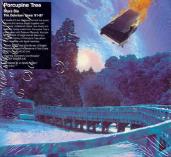
Reviewed by Christopher J. Kelter



After hearing "Signify," "Stupid Dream," and "Lightbulb Sun," I was still unable to convince myself to purchase any of Porcupine Tree's earlier material because I'd heard that much of the band's early output was more psychedelic and trance-like in composition and sound. Lo and behold the "Stars Die" compilation was produced to highlight Porcupine Tree's formative years on Delerium Records (i.e. Porcupine Tree's output up until "Signify"). I figured this was a reasonable investment even if I didn't find all of the music to my liking.
The first CD of the two-CD set showcases Porcupine Tree during the years 1991 through 1993. Many of the tracks feature trance-like loops and experimental vibes that aren't usually my preferred listening styles. However, there are enough organic left-of-center goodies that make this half of the "Stars Die" package worth listening to on occasion. The somber yet mysteriously dreamy "Rainy Taxi" is a gem while "Radioactive Toy" has a debt to English rockers Pink Floyd and Dire Straits that brings back pleasing memories of when England regularly produced real rock stars.
The second CD highlights Porcupine Tree's continuing evolution from 1994 through 1997.
"The Sound Of No-one Listening" and "Colourflow In The Mind" are the highlights on the second disc that provide more than enough insight into the
pre-"Signify" days of Porcupine Tree. Both of these tracks feature prog-rock music at its finest. The second CD alone makes it worth the cost of the set (even if it does have four songs found on
"Signify" which I already own). Given the fact that the first CD will get limited play in my playback systems in the future
I'll be counting on this second disc to remind me how good Porcupine Tree were even before I was blown away by their stellar work from
"Signify" and forward.
The best feature of the CD is the numerous previously unreleased tracks, single-only tracks, and new mixes (not
'remixes') of songs from the band's prior efforts. The best of the unreleased tracks is the title track; even Wilson admits in the extensive and informative liner notes that not properly releasing this song with the album
"The Sky Moves Sideways" was a huge mistake (he rectified that mistake by putting the track on a future EP release). To me the songs previously only available on singles and EPs are gems that I will hold dearly as it is unlikely that I will collect Porcupine
Tree's material prior to
"Signify." For that very reason I am also unable to comment on the two re-mixed tracks, but from the liner notes I sense that the tracks are now mixed to
Wilson's personal, exceedingly high standards.
What "Stars Die" lacks in cohesiveness it more than makes up for it with history lesson in one band's evolution from Steven Wilson's one-man band to a truly cohesive band effort that fleshes out Steven Wilson's creative genius with keyboardist Richard Barbieri, bassist Colin Edward, and drummer Chris Maitland.
Fans of Porcupine Tree will not be able to do without
"Stars Die" in their collection. Casual fans can probably do without
"Stars Die," although I have a feeling that over time even casual Porcupine Tree fans will become ardent fanatics and will eventually want to add it to their collection.
Porcupine Tree is Steven Wilson on vocals, guitars, piano and samples, Richard Barbieri on Hammond organ, synthesizers and mellotron, Colin Edwin on bass guitar, and Chris Maitland on drums and percussion.
For more information visit http://www.porcupinetree.com.
![]()
"Recordings"
(Snapper / K-Scope; 2001)![]()
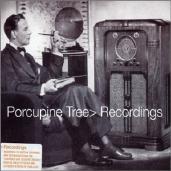
Reviewed by Christopher J. Kelter



![]()
"Recordings" is a collection of outtakes, re-recorded demos and the like from the sessions that spawned the stellar "Stupid Dream" and near-stellar "Lightbulb Sun." Some of the songs appeared on the band's extensive singles collection (but I'll bet you haven't got those lying around the house). Also included on "Recordings" is the original, full-length recording of "Even Less" - and that's cause for celebration.
The basic idea I'll try to get across to you, dear reader, is that "Recordings" makes you realize how amazing it is that one band's 'throwaway' is often better than most band's first-rate material.
"Recordings" flows much like a normal Porcupine Tree disc - which isn't a bad thing at all. The disc starts off with "Buying New Soul" - at more than 10-minutes this slow, lumbering number is hard to get into at first, but blossoms eventually into a morose song that will leave you feeling quite sad. "Access Denied" follows with a 180-degree turn into Beatle-esque piano and vocal hooks. "Cure For Optimism," probably my favorite song on the album, is a slow-burner that bubbles with intensity as a budding musician realizes he's the victim in push for money in the recording industry.
"Disappear" is a slow building song that haunts you with its line "I erase myself again" which can only lead you to think about the impact digital technology is having on our lives. The extended version of "Even Less" is even more depressing than the short version that appears on the album "Stupid Dream."
Three instrumentals are included on "Recordings": "Untitled," "Ambulance Chasing," and "Oceans Have No Memory" are probably songs that never made it to the stage of having lyrics written for them, but sound great nonetheless. "Ambulance Chasing," in particular, sounds really good and would appeal to most rock and roll fans regardless of your inclination because it covers a very, very wide spectrum of musical styles without sounding disjointed or pasted together. "Oceans Have No Memory" is a classic way to end an album.
I guess it would be a cop-out to say that the songs on "Recordings" lack the prog-leanings of earlier Porcupine Tree material, but then again, with the overall length of later-era Porcupine Tree songs getting shorter, "Recordings" does contain some long songs. Perhaps these non-standard tunes were discarded not for their quality, but for the lack of 'fit' with previous albums' themes and flow. No matter what I think (or you think for that matter) "Recordings" is a solid album.
The bottom-line: Porcupine Tree must have "Recordings" in their collections. Others may wish to wait until they've absorbed more of the band's official releases before purchasing "Recordings."
"Recordings" was produced by Steven Wilson.
Porcupine Tree is Steven Wilson on vocals and guitars, organ, and mellotron; Colin Edwin on bass; Richard Barbieri on keyboards and synthesizers; and Chris Maitland on drums.
For more information visit http://www.porcupinetree.com/.
![]()
"Lightbulb
Sun" (Snapper / K Scope; 2000)![]()
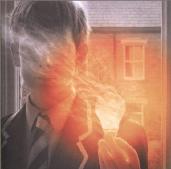
Reviewed by Christopher J. Kelter



![]()
"Lightbulb Sun" is a much more musically mellow effort from Porcupine Tree. Not that "Stupid Dream" was a rocker or anything resembling heavy metal. To me "Lightbulb Sun" is the culmination of a band's musical efforts leading to critical success (and to some extent commercial success). And I can imagine that this success forged a confident mood in the recording studio that probably allowed the band to relax and simply do what it does best - make phenomenal music.
As is to be expected, Porcupine Tree covers a lot of ground on "Lightbulb Sun." The title track's pop-like sound belies the tragic story of a homebound 'bubble boy,' the Beatle-esque "How Is Your Life Today?" evokes memories of when vocal skills outshined musical skills , the scathing treatise on purely pop bands like Oasis in "Four Chords That Made A Million" is practically a plea for more respect to non-mainstream music, and gems like "Shemovedon" are most pleasing to the ears. However, there is more substance to the disc than I could ever provide in a simple CD review.
For lack of a better description Porcupine Tree's "Lightbulb Sun" reaches more into the pop realm in terms of song structure and melodic construction while probably leaving some of the band's more ambient and trance qualities on the recording room floor. However, despite the shorter, more focused tunes on "Lightbulb Sun" Porcupine Tree manage to record the sprawling epic "Russia On Ice" and the exploratory "Hatesong." "Russia On Ice" may be progressive rock at its finest. "Russia On Ice" takes the bold step of incorporating classical instrumentation into the band's already expansive sound. "Hatesong" rocks as hard as anything the band's ever done - Hatesong" allows bassist Colin Edwin to really shine and more than adequately displays Steven Wilson's copious six-string talents.
"Lightbulb Sun" is only a slight drop-off in quality from "Stupid Dream," but really is much better than most music that is released these days.
"Lightbulb Sun" was produced by Steven Wilson.
Porcupine Tree is Steven Wilson on vocals and guitars, organ, and mellotron; Colin Edwin on bass; Richard Barbieri on keyboards and synthesizers; and Chris Maitland on drums.
For more information visit http://www.porcupinetree.com/.
![]()
"Stupid
Dream" (Snapper / K Scope; 1999)
![]()
![]()
Reviewed by Christopher J. Kelter




Having learned of Porcupine Tree via Steven Wilson's involvement with Opeth's "Blackwater Park" and sufficiently impressed by Porcupine Tree's third full-length CD "Signify" I convinced myself that it was worth my time and money to invest in more of Porcupine Tree's material.
"Stupid Dream" immediately followed the impressive "Signify" and showcased the band's ever-evolving focus and discipline. While still leaving the band's progressive and ambient elements intact "Stupid Dream" manages to take Porcupine Tree's miasma to newfound accessibility and creative highs within more standard song structures.
"Even Less" gets things started on the right foot - it's one of the best modern prog-rock songs you'll ever hear. "Piano Lessons" and "Pure Narcotic" continue the album's strong beginning by giving the Porcupine Tree sound a dip into pop song structures without losing their progressive charm.
Then "Stupid Dream" gets really interesting with more progressive elements, some obvious and some understated, as "Slave Called Shiver," "Don't Hate Me," and "This Is No Rehearsal" move the listener into the mind of a confused soul trying to find his place in the world. These three tracks are evidence enough of Steve Wilson's ability to convey all kinds of painful emotions without raising his voice above a whisper. "Tinto Brass" is a hard-rocking progressive track that will snap you out of the somber doldrums that the two prior songs, "Stranger By The Minute" and "A Smart Kid," will effectively put you in.
Simply put "Stupid Dream" is a prog-rock masterpiece. "Stupid Dream" is a delight to listen to and I'm sure I'll listen to "Stupid Dream" when I'm in the mood for something that is mellow yet engaging.
Fans of early era Genesis, Pink Floyd, The Flower Kings, and Transatlantic will appreciate Porcupine Tree.
"Stupid Dream" was produced by Steven Wilson.
Porcupine Tree is Steven Wilson on vocals, guitars, piano and samples, Richard Barbieri on Hammond organ, synthesizers and mellotron, Colin Edwin on bass guitar, and Chris Maitland on drums and percussion.
For more information visit http://www.porcupinetree.com.
![]()
"Signify"
(Ark 21 / Deleriump; 1996)![]()
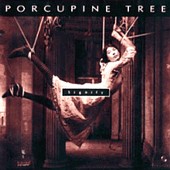
Reviewed by Christopher J. Kelter



![]()
Having learned of Porcupine Tree mastermind Steven Wilson through his involvement during the creation of Opeth's "Blackwater Park" I knew I had to check out what his main band had to offer. I knew all too well that Porcupine Tree fit more into the progressive rock mold than any form of hard rock or heavy metal, but I felt that Wilson's contributions to Opeth warranted closer inspection. Besides, any band that carries the reputation of being one of England's most daring musical outfits deserves a listen.
Luckily for me, while hunting for discarded gems in the local used CD store's budget bin I found a near-pristine copy of Porcupine Tree's "Signify" at a bargain basement price. One man's can-do-without CD is another man's can't-be-without CD.
"Signify" is Porcupine Tree's 1996 release which was the third release with the four-piece stabilized line-up featuring Wilson, Colin Edwin, Richard Barbieri, and Chris Maitland. "Signify" mines the creative well of rock, ambient, noise, and progressive genres; however, "Signify" simply defies categorization. Hypnotic noise collages and mesmerizing soundscapes join not-too-ordinary songs into a challenging listen and a very rewarding experience. Porcupine Tree doesn't forget that rocking out can release the soul's demons, yet also uses more somber musical passages to give the album depth and space to explore the dark reaches of the human psyche.
The lyrics on "Signify" are just as important as the music. The lyrics speak of the cycle of life in rather surreal terms with copious utilization of modern technology's invasion into our everyday lives. Are the lyrics about the elimination of psychosis? The psychic fallout from modern society? My best advice is to decide for yourself. "Sever" shreds an American icon in television specifically mentioning the widespread popularity of Oprah Winfrey. "Idiot Prayer" has a creative peak many bands never dream of achieving. "Every Home Is Wired" laments the loss of human interaction due to the infiltration of electronic devices that allow modern society to 'cocoon' itself from the outside world while seeking all communication and entertainment needs. "Dark Matter" takes a cold, hard look at the desperate attempts the hopeless do to gain attention in this society of crumbling morals and perhaps even suggests that the foolish ways the insecure seek immortality and fame.
The avant garde result of "Signify" is a unique experience that is both compelling, unsettling, and out-of-the-ordinary. Fans of Watchtower, Cynic, Gordian Knot, and Flying Saucer Attack would be wise to check out Porcupine Tree. "Signify" is also highly recommended for those of you who like to explore the far reaches of music and don't need crunchy guitars 24-7 to listen to excellent music.
"Signify" was produced by Steven Wilson.
Porcupine Tree is Steven Wilson on vocals and guitars, organ, and mellotron; Colin Edwin on bass; Richard Barbieri on keyboards and synthesizers; and Chris Maitland on drums.
For more information visit http://www.porcupinetree.com/.
![]()
Rating Guide:



 A classic. This record will kick your ass.
A classic. This record will kick your ass.


 Killer. Not a classic but it will rock your world.
Killer. Not a classic but it will rock your world.

 So-so. You've heard better.
So-so. You've heard better.
 Pretty bad. Might make a nice coaster.
Pretty bad. Might make a nice coaster.
![]() Self explanatory. Just the sight of the cover makes you wanna hurl.
Self explanatory. Just the sight of the cover makes you wanna hurl.
![]()
Copyright © 2010 by R. Scott Bolton. All rights
reserved.
Revised:
20 Jan 2025 12:16:15 -0500.
